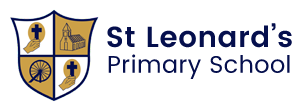In this section of the website, you will find information about our approach to teaching Modern Foreign Languages at St Leonard’s.
A high-quality language education should foster children’s curiosity and deepen their understanding of the world. At St Leonard's, we are committed to ensuring that competence and enthusiasm in learning another language enables children to interpret, create and exchange meaning within and across cultures. We endeavour to guide our children to become and grow as global citizens, developing skills that will open further opportunities later in life. The teaching of Spanish in KS1 and KS2 focuses on the 4 areas: reading, writing (KS2), speaking and listening and provides an appropriate balance of these domains, laying the foundations for further foreign language teaching at KS3. Children are introduced to Spanish from the EYFS and all classes use Spanish as part of their daily routine. Year 2 have a weekly 30-minute lesson using the Bishop Chadwick Trust Scheme of Work. KS2 classes have an hour-long lesson using the same scheme of work. This approach enables the children to develop early language acquisition skills that facilitate their understanding of the patterns of language and how these differ from, or are similar to English. Lessons across the Key Stages support the skills of speaking, listening, reading and writing (KS2). Children are taught to listen attentively to spoken language and to respond, joining in with songs, rhymes and games. Children develop an appreciation of a variety of stories, songs, poems and rhymes in Spanish that are delivered through the curriculum content. All lessons use PowerPoint presentations which are delivered by a native Spanish speaker. Our MFL curriculum ensures that children develop their knowledge of where different languages, including the range of home languages spoken by the families of the school, are spoken in the world. Varied learning experiences, ensures that languages are celebrated throughout the school community whilst providing a context for language learning as well as developing the children’s understanding of different cultures and global issues. We believe our children will:


